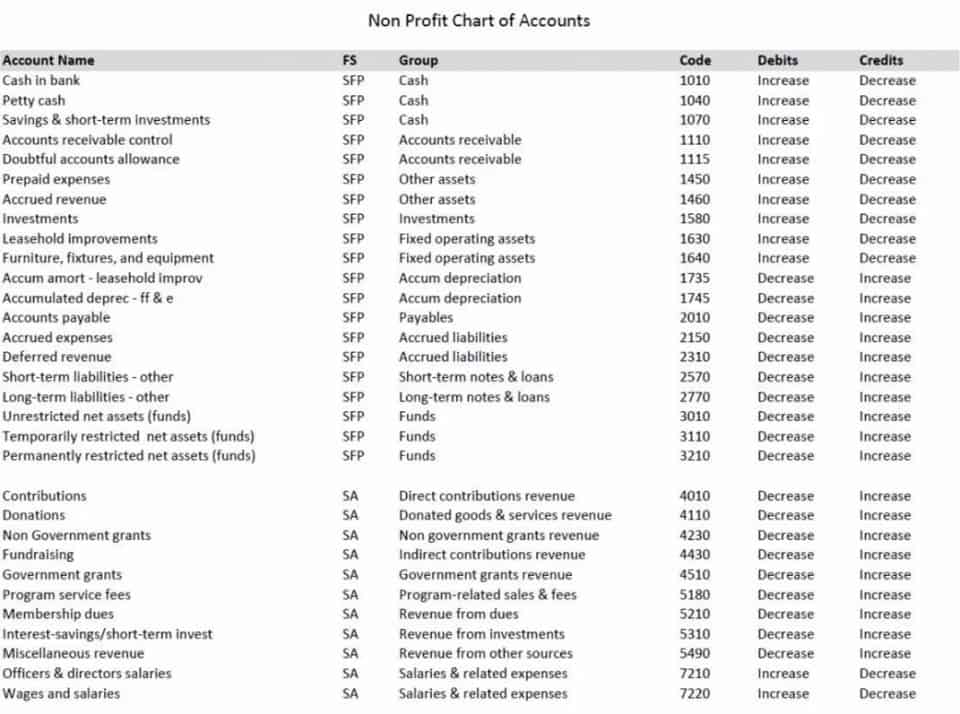
This includes guidance on training, technology tools, and professional networks that can support ongoing education and adherence to financial regulations. The structured approach aims to equip accountants with the necessary knowledge to navigate the complexities of financial compliance effectively. Lenders and investors can also demand the standards and rules that accountants follow while recording and reporting financial activities GAAP-compliant financial statements from privately owned enterprises and charitable organizations.
Why is financial compliance important in accounting?
By distributing responsibilities among different employees, organizations can create a system of checks and balances that enhances accountability. Moreover, regular training sessions can income summary serve as a platform for discussing real-world scenarios and case studies. This practical approach allows employees to engage with the material actively and apply their knowledge to everyday situations. Ultimately, well-trained staff are better equipped to identify potential compliance issues and contribute to the overall integrity of the financial reporting process.
A. Definition of financial compliance
Still, caution should be used, as there is still leeway for number distortion under many sets of accounting principles. Privately held companies and nonprofit organizations also may be required by lenders or investors to file GAAP-compliant financial statements. For example, annual audited GAAP financial statements are a common loan covenant required by most banking institutions.

History of IFRS
- If a method or practice is changed, or if you hire a new accountant with a different system, the change must be fully documented and justified in the footnotes of the financial statements.
- Organizations that prioritize compliance can build trust with stakeholders, improve operational efficiency, and achieve long-term sustainability.
- In recent years, FASB and IASB have been working together to converge the two sets of standards, aiming to create a single global financial reporting framework.
- Another key responsibility of accountants is to stay informed about changes in financial regulations and compliance requirements.
- Privately owned companies do not, but may find that bankers, investors and other stakeholders prefer that reports be generated to GAAP standards.
- The issue of differing accounting principles is less of a concern in more mature markets.
- These regulations are designed to prevent illicit activities and require accountants to implement robust compliance programs.
Since much of the world uses the IFRS standard, a convergence to IFRS could benefit international corporations and investors alike. For instance, GAAP allows companies to use either first in, first out (FIFO) or last in, first out (LIFO) as an inventory cost method. However, the FASB and the IASB continue to work together to issue similar regulations on certain topics as accounting issues arise. The International Accounting Standards Board (IASB) issues International Financial Reporting Standards (IFRS). These standards are used in approximately 168 jurisdictions, including those in the European Union (EU).

A. Identifying and understanding regulations
Through these evaluations, they can provide valuable insights and recommendations for improving internal controls and processes. This proactive approach not only enhances compliance but also strengthens the overall financial integrity of the organization. Lastly, “audit trails” are critical in financial compliance, as they provide a chronological record of financial transactions.
In addition, transparency enhances the credibility and reputation of companies and management, creating a higher level of trust with their investors and stakeholders. In conclusion, both ethics and materiality are integral components of GAAP-compliant accounting. Ensuring ethical practices and proper consideration of materiality in financial reporting helps maintain trust in the accounting profession and provides accurate, reliable information for decision-makers. These entities law firm chart of accounts work together to create a stable financial environment for investors and businesses alike in the United States and on a global scale. The International Accounting Standards Board (IASB) serves a similar purpose on a global scale.
International Financial Reporting Standards or IFRS
- Regular training sessions and updates on compliance matters are vital for sustaining this culture.
- Additionally, accountants should keep abreast of anti-money laundering (AML) regulations and know your customer (KYC) requirements, which are critical in the financial services sector.
- In the realm of financial compliance, accountants must possess a robust understanding of regulatory frameworks and standards.
- By joining these organizations, accountants can enhance their knowledge and ensure they meet compliance standards effectively.
- By investing in staff education, organizations can foster a culture of compliance and accountability.
- He is an expert on personal finance, corporate finance and real estate and has assisted thousands of clients in meeting their financial goals over his career.
Membership in professional networks also offers accountants opportunities for networking and collaboration. Engaging with peers allows for the exchange of ideas and experiences, which can lead to improved compliance strategies. Additionally, these organizations often host events, seminars, and workshops that focus on current trends in financial compliance. Regular monitoring and assessment of internal controls are also critical to their effectiveness. Organizations should conduct periodic audits and reviews to identify any weaknesses or areas for improvement. By proactively addressing these issues, accountants can help ensure that internal controls remain effective and aligned with the organizationâ??
Regulations can vary significantly based on the jurisdiction, industry, and specific financial practices. Accountants must stay informed about local, national, and international laws that govern financial reporting and compliance to ensure adherence. GAAP is a set of standards that companies, nonprofits, and governments should follow when preparing and presenting their financial statements, including any related party transactions. GAAP is the set of standards and regulations any publicly traded company in the U.S. is legally required to follow when preparing financial documents. Any accountant handling financial reports and information for these companies must adhere to GAAP guidelines.

Many software solutions offer features that alert users to updates in compliance requirements, helping to streamline the process of maintaining adherence to new laws. By utilizing these resources, accountants can enhance their ability to navigate the complexities of financial compliance effectively. Moreover, ethical practices foster trust between accountants and stakeholders, including investors, regulators, and the public. This trust is crucial for the smooth functioning of financial markets, as it encourages investment and promotes economic stability. When accountants demonstrate a commitment to ethical behavior, they contribute to a culture of accountability and responsibility within their organizations. In addition to monitoring compliance, accountants also conduct regular audits and assessments to identify potential areas of risk.